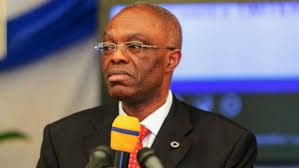WHO Debunks Misconceptions About Vaccines And Its Safety

The World Health Organization (WHO) Country Representative to Nigeria, Walter Mulombo, has clarified that vaccines are tested and go through rigorous and lengthy scientific trials as well as certification processes with WHO and national regulatory agencies to ensure that they are safe and effective.
Mulombo stated this in Abuja at a WHO sponsored Health Journalists capacity building workshop with the theme: “Empowering journalist to drive the change narrative with compelling data-driven health stories.”
He was speaking against the backdrop of certain myths and misconceptions which have trailed Vaccines and its safety.
“Vaccines are safe and undergo rigorous testing by global health authorities before approval.
“Vaccination is a human right, and spreading misinformation or preventing access to vaccines can have severe consequences, including human rights violations.
“We will collaborate to dispense accurate information to fight misinformation and promote sustainable development by 2030.”
Mulombo emphasized the crucial role of journalists in promoting public health awareness, just as he urged the members of the Fourth Estate of the Realm to prioritize truth and accuracy in their reportage.
He remarked that the globe is evolving, a situation which has made the Sustainable Development Goals (SDGs) much more crucial like never before.
“With only 17% of targets on track, it’s clear that global challenges like economic downturns, COVID-19, climate change, and humanitarian crises are hindering progress.”
He said, the challenges to overcome involved global economic downturn, donor countries are increasingly looking inward, relying on domestic resources.
“Climate Change has been a pressing issue requiring collective action, and conflicts, poverty, and inequality demand urgent attention, saying news and epidemics spread quickly, undermining progress.
“Despite these challenges, there’s hope. The United Nations General Assembly and the Summit of the Future endorse collective action. The UN Secretary-General emphasizes that past policies won’t build the future; we need innovative solutions.”
According to him, as critical partners, journalists must report responsibly, considering the consequences of their words. With misinformation spreading rapidly, especially during crises like COVID-19, fact-based reporting is vital. Journalists serve as the interface between organizations and communities, providing reliable information to combat misinformation.
As a country representing almost a third of the African continent, Nigeria plays a crucial role in achieving the SDGs. With one in five black people worldwide being Nigerian, the country’s progress will significantly impact global development.
“Let’s work together to address these challenges and create a better future.
“I am happy to announce that our colleagues have organized this event to facilitate collaboration between our organizations. We have different clusters working together to achieve common goals. I expect more collaboration, particularly around: Vaccine education, campaigns we want to engage with you on discussions about the impact of vaccines in Nigeria.”





